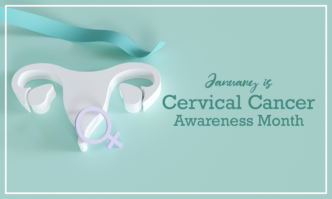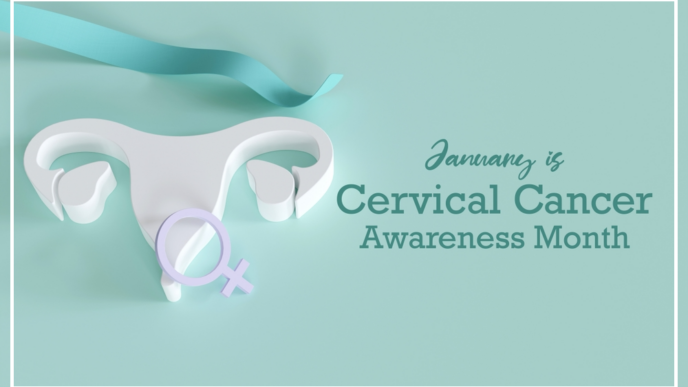WORDS LIM TECK CHOON
 FEATURED EXPERT FEATURED EXPERTDR VIGNESWARAN RAMAKRISHNAN Consultant Obstetrician and Gynaecologist Prince Court Medical Centre |
Women’s reproductive or gynaecological cancers are cancers that affect the pelvic organs such as:
|
MYTH 1: GYNAECOLOGICAL CANCERS ONLY AFFECT OLDER WOMEN
NOT ALWAYS TRUE.
Dr Vigneswaran Ramakrishnan shares that he personally has patients ranging from as young as 7 years old to as old as 90 years old.
- It’s true that certain types of gynaecological cancers are more common in older women, such as endometrial cancer being more common in women over 45.
- However, cancers like cervical cancer can also affect younger women, particularly in their 20s and 30s.
“Hence, early detection through regular screenings is crucial for women of all ages,” Dr Vigneswaran tells us.
MYTH 2: YOU ARE NOT AT RISK IF NO ONE IN YOUR FAMILY HAS OR HAS HAD GYNAECOLOGICAL CANCER
NOT ALWAYS TRUE.
“Not all cancers are genetically linked,” says Dr Vigneswaran.
- Mutations in genes BRCA1 and BRCA2 can increase the risk of ovarian and breast cancer.
- However, most gynaecological cancers are not hereditary.
“Even without a family history, regular check-ups and screenings are essential, especially as women age or experience symptoms that may indicate a potential issue,” Dr Vigneswaran states.
MYTH 3: NO SYMPTOMS = NO CANCER
NOT TRUE.
Dr Vigneswaran warns us: “You can have early-stage cancer and not exhibit any symptoms at all!”
For example, early-stage ovarian cancer can have no symptoms, and endometrial cancer may not show symptoms until it progresses.
Dr Vigneswaran recommends us to remain vigilant and consult a doctor if we experience unusual changes, even in the absence of symptoms.
| SOME SIGNS TO WATCH OUT FOR
Endometrial cancer?
Cervical cancer?
Ovarian cancer?
|
MYTH 4: PAP SMEARS CAN DETECT ALL TYPES OF GYNAECOLOGICAL CANCER
NOT TRUE.
Dr Vigneswaran clarifies that what is often referred to as a Pap smear is now commonly performed using liquid-based cytology, a more advanced method of screening.
- However, Pap smear or liquid-based cytology only screens for cervical cancer.
- “They do not detect ovarian, endometrial, or other gynaecological cancers,” says Dr Vigneswaran.
Unfortunately, there are no screening tests available for all types of gynaecological cancers. For ovarian and endometrial cancers, there are no universally accepted tests with high sensitivity or specificity.
However, Dr Vigneswaran recommends that:
- Women over 25 consider annual pelvic or abdominal ultrasounds as these can help detect potential issues early.
- There are also blood tests that can detect raised cancer markers, indicating the need for further evaluation.
| Other Ways to Reduce Gynaecological Cancer Risk
Note that there is no foolproof way to prevent gynaecological cancers.
|
MYTH 5: RAISED CANCER MARKERS ARE A CERTAIN SIGN THAT YOU HAVE CANCER
NOT ALWAYS TRUE.
- Dr Vigneswaran reveals that raised cancer markers can indicate cancer.
- However, cancer markers can also be elevated due to other benign or non-cancerous conditions such as endometriosis or inflammatory diseases.
To confirm a diagnosis, doctors must correlate blood test results with imaging studies, clinical findings, and symptoms.
Hence, don’t panic when test results indicate raised markers. Raised cancer markers should be instead seen as a prompt for further investigation.
MYTH 6: BIRTH CONTROL INCREASES YOUR RISK OF DEVELOPING GYNAECOLOGICAL CANCERS
NOT TRUE.
The birth control pill itself does not raise the risk of cancer.
“Studies actually show that using birth control pills can reduce the risk of ovarian cancer,” says Dr Vigneswaran.
However, having multiple sexual partners may increase the risk of contracting HPV, which is linked to cervical cancer.
| This article is part of our series on the facts of cancer, treatment options, and latest innovations in diagnosis and treatment of cancer. |














